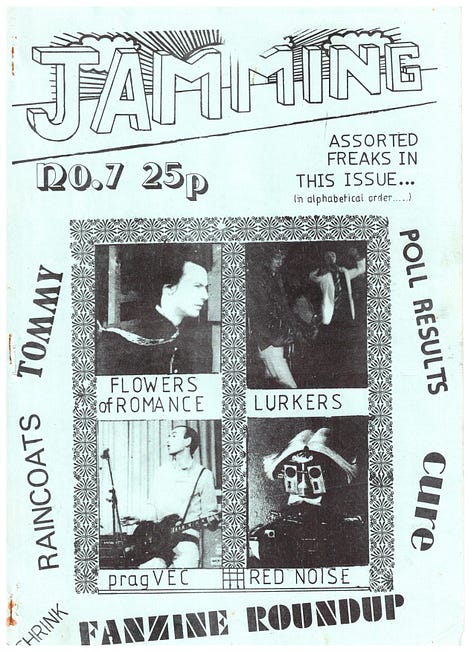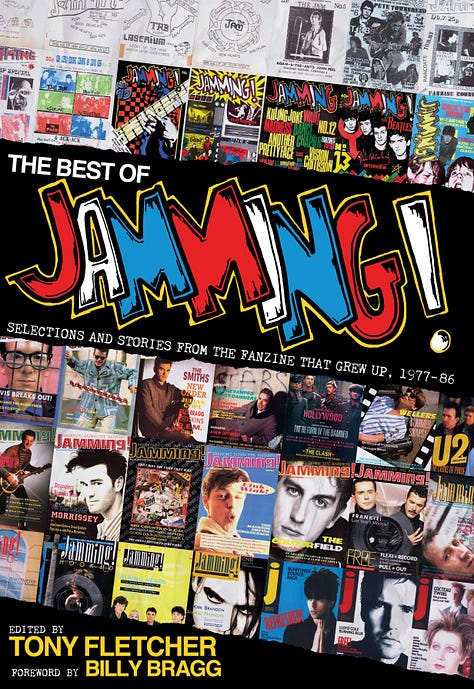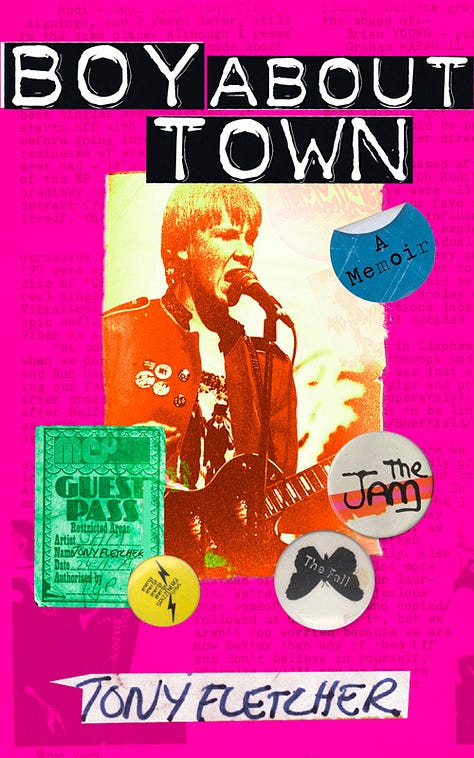This coming week, there will be a new Crossed Channels podcast on the subject of The Who, planned title The Who Take on US and Win, 1967-69. But for now, I am still enjoying the mid-summer break and am bringing you one more repost from the vaults, another of the many interview transcripts from my vast repository that I am gradually publishing here. I could have chosen the superstar likes of Pete Townshend, or Keith Richards, or Jeff Beck etc., but I am going for Bill Nelson instead. The interview got what I was going to call a “surprisingly” high number of views back when first published, but maybe it was not that surprising: after all, part of my premise below is that Bill Nelson was - and remains, another two years down the line - the very definition of the cult artist.
Indeed, there is an active Bandcamp page which, despite what I understand to be Bill’s failing health, at least with regards to music-making, announces another reissue of another rare release from his vast back catalogue on what sometimes feels like a weekly basis. The most recent of these new Bandcamp projects is Caliban And The Chrome Harmonium (The Piano And Vibraphone Variations) which, and I quote, “was initially released in 2001 as an extremely limited (30 copies) handmade CDR that was given to close acquaintances as well as to fans who had contributed to the purchase of new studio recording equipment.”
As with the original post, this interview - 5000 words plus an introduction from his drummer at the time, Steve Peer - is for paid subscribers; I imagine many of the newer ones to join that elite set of Wordsmith readers may not have had a chance to dive back and acquaint themselves with it. Subscriptions are just $6/c.£5 a month, with a 20% discount for a full year. You get access to all the archives, future archived interview manuscripts like this one, and the Crossed Channels podcast. In addition, you keep the engine running, the motivation moving, and pay it forwards for those who can’t. Cheers.
From the Jamming! Archives: Bill Nelson, 1979
If the likes of Siri and Bixby were not Artificial intelligence, they would answer your question, “Define a cult artist” with the response: Bill Nelson. The musician, composer, singer, artist, and guitarist extraordinaire has been making music for over 50 years now, some of which has been commercially successful (most notably with his early 1970s band Be-Bop Deluxe), some of which has been critically acclaimed (including the post-Be-Bop band Bill Nelson’s Red Noise, about which I interviewed him below), and much of which has fallen under the radar, in part because Bill long ago turned his back on the demands of the major music industry and became one of the first post-punk-era examples of the musician as cottage industry.
Quite literally: Bill has spent decades working out of his farmhouse in West Yorkshire, taking control of all aspects of his music, which has run the gamut over these decades from art rock to ambient, with many points between. If you would like to read more about him, I recommend this bio at AllMusic, and if you would then like to read more by him, I can recommend his second Diary of a Hyper-Dreamer, as published by Mark Hodkinson’s independent imprint Pomona, though Bill proves somewhat excruciating in his perfectionism, which probably comes as no surprise to his legions of fans!1 Volume 1 is entirely sold out and I have never seen a copy.
At the time of the interview, in early 1979, Bill Nelson had split Be-Bop Deluxe and formed a new group. The clip above is of Bill Nelson’s Red Noise, featuring Steve Peer on drums, performing three songs on the Old Grey Whistle Test, as introduced by the recently, dearly departed Anne Nightingale. Unfortunately, her intro and outro are not her finest moments.
By way of actual introduction to this essentially unedited interview drawn from the typed manuscript I have kept in meticulous condition for 45 years now, I offer you two introductions. One is from Boy About Town, my early teen memoir published in 2013, in which I describe my love for Nelson’s 1970s rock band Be-Bop Deluxe - their 1976 LP Sunburst Finish will always be up there as one of my favorite albums, certainly of that era - and describes the process by which I conducted the interview below.
The other intro is from one of Bill’s band members at the time, the Red Noise tour drummer Steve Peer, who befriended me that day in early 1979, kept up a pen-pal relationship for decades, and has since played host to me a couple of times up in Maine, where he now lives. I originally asked Steve for a quick blurb to accompany this interview in The Best of Jamming!: Selections & Stories from the Fanzine that Grew Up 1977-86, but he wrote back a small essay. I assured him that one day we’d have opportunity to use it. That day is here.
First, from Boy About Town:
“I’d bought the Be-Bop Deluxe LP Sunburst Finish after seeing them at the Great British Music Festival way back in early 1976, and still loved it. (On their final album, Drastic Plastic, however, they tried to jump the new wave bandwagon, and lost all sense of place and purpose in the process; Bill Nelson appeared to admit as much by announcing their break up soon after.) So when Bill Nelson announced that his new band Red Noise would be releasing an LP and going on tour, I decided to go after him for an interview.
Nelson didn’t have a fan club, didn’t run a book store, didn’t send out newsletters. I had no choice but to approach him the official way. I called the EMI switchboard a few times and was eventually given the number of his “publicist,” Tony Brainsby. (And there was me thinking that publicity was part of the record company’s job.) I called Brainsby’s office and found myself on the phone with a girl called Magenta DeVine. The conversation was productive, and a couple of days later I went to their office in central London and hand delivered the last two issues of Jamming. There were gold and platinum discs lining the walls, and there were conference rooms and sofa chairs. I was impressed. I had been spending all my time recently in record store basements and rooms above pubs, hanging amidst the backstage graffiti at the Marquee or rehearsing alongside the political slogans at the Brixton Advice Centre; I had almost stopped considering how much money there was in the music business for those who knew how to make it.
A few days later Magenta called to schedule me an interview during Nelson’s tour rehearsals – which were conveniently taking place inside the old Astoria cinema opposite the Brixton police station. But more important than location was the matter of acceptance; this was the first time anybody working with the major record labels had recognized Jamming as some sort of proper publication.
And then, a few days before the interview, I got another late afternoon call from Magenta. (All my weekday phone calls were late afternoon; I had no idea how often the phone rang when I was at school.) She told me, with brisk sincerity, that she was cancelling it. There were too many people wanted too much of Bill’s time, and the band leader himself had asked her to postpone my interview. “I’m sorry,” she said when I protested, “but Bill’s priority right now is to get his shit together.”
Get his shit together? That was the kind of thing an American rock star might have said - before punk came along. It certainly wasn’t the kind of thing I imagined Bill Nelson saying to anyone.
So I turned up for the interview anyway. That following Saturday, earlier than originally planned, I went to the old Brixton Astoria and I waited for Nelson outside the stage door. When he arrived, in a chauffeur-driven car, I approached him and explained my situation, and just as I thought, he knew nothing about any of it. He thanked me for my enthusiasm and persistence, invited me to come in with him and told me I was welcome to stick around all day. It was only when we were an hour into the interview itself that he suggested he really ought to get on with rehearsing his new band for his big tour. He never once uttered the term “getting my shit together.””



And now, from Steve Peer.




